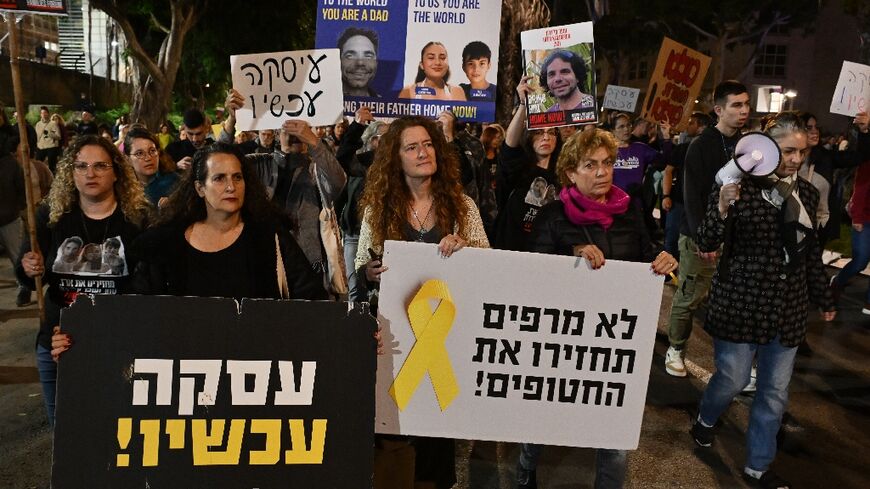Israeli Prime Minister Benjamin Netanyahu vowed Saturday to keep up the military pressure on Hamas, despite anguished appeals from relatives of hostages held in Gaza for a return to negotiations after friendly fire killed three captives.
The Israeli army revealed earlier that the three hostages were carrying a white flag and cried for help in Hebrew, when they were mistakenly fired on by Israeli troops.
The news of their killing sparked protests in Israel, with the relatives of the remaining hostages expressing concern their loved ones could be next and urging Netanyahu to return to the negotiating table.
"All we get again and again are dead hostages," Noam Perry, daughter of hostage Haim Perry, said at an event in Tel Aviv organised by the Hostages and Missing Families Forum.
"Our demand is not a fight (with the government). It's a call that anyone would have made if it had been their father. Take us into consideration and come up with a plan now (for negotiation)."
More than 100 of the 250 Israelis and foreigners seized by Palestinian militants during unprecedented October 7 attacks were released in exchange for 240 Palestinian prisoners during a week-long truce last month.
Ruby Chen, father of 19-year-old soldier Itai, who is among the remaining 129 captives, said: "We feel like we're in a Russian roulette game (finding out) who will be next in line to be told the death of their loved one.
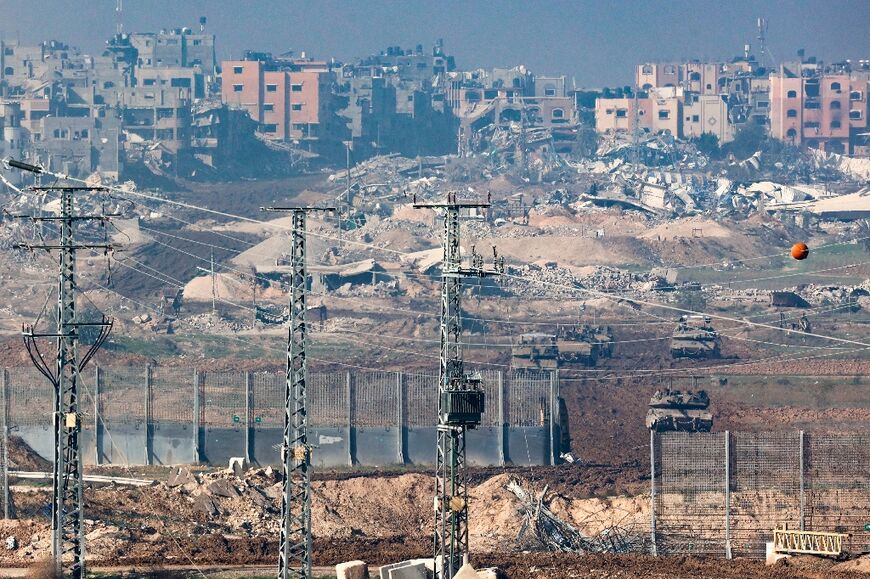
Israel has previously said eight other hostages have died.
But Netanyahu was adamant that military force was needed for any new negotiations to succeed.
"With all the deep sorrow, I want to clarify: the military pressure is necessary both for the return of the kidnapped and for achieving victory over our enemies," he said.
"The guidance I give to the negotiations team is based on this pressure, and without it we have nothing," he said.
Hamas said Saturday that it would not "open any negotiations to exchange prisoners unless the aggression against our people stops completely".
After Hamas's October 7 attacks, which killed 1,139 people, mostly civilians, Israel launched relentless bombardment and ground invasion of Gaza, vowing to destroy Hamas and bring back the hostages.
Its assault has left much of the territory in ruins and has killed at least 18,800 people, mostly women and children, according to the Hamas authorities who rule the territory.
Army spokesman Daniel Hagari said that during fighting in the Shejaiya district of Gaza City, troops "mistakenly identified three Israeli hostages as a threat and as a result, fired toward them and the hostages were killed".
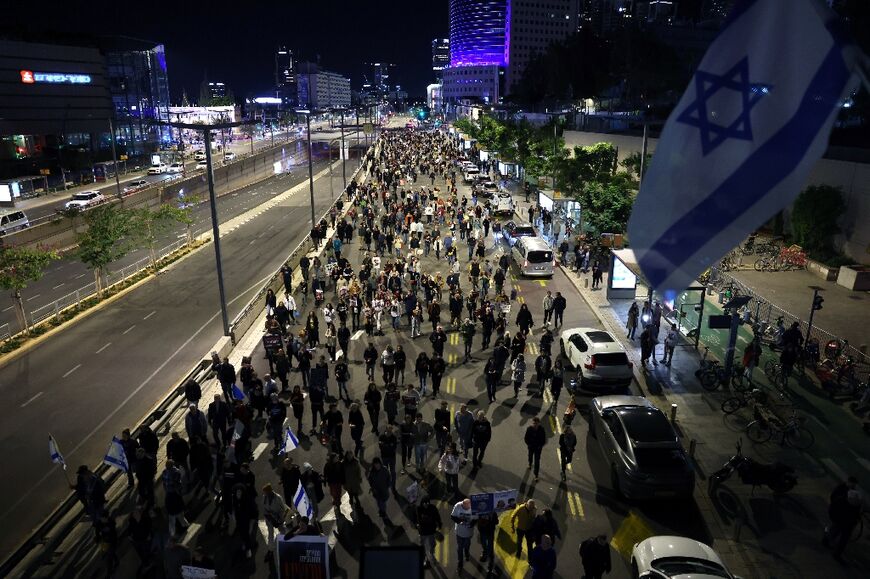
An army official said the hostages were all "without shirts" and had "a stick with a white cloth on it", but a soldier felt threatened and opened fire.
"Two are killed immediately, one is injured and runs back into the building," the official said, adding that the soldiers heard "a cry for help... in Hebrew".
Despite a ceasefire order, "there's another burst of fire towards the third figure and he also dies."
The official called it a "tragic" event and "very hard day", but said the troops had faced "intense combat in the area".
- Christians shot dead -
The three hostages' deaths have heightened already fierce scrutiny of how Israel is conducting its military operations in Gaza.
The administration of United States President Joe Biden, which provides billions of dollars in military aid to Israel, has voiced growing concern over civilian deaths.
Pentagon chief Lloyd Austin, who is heading to Israel as part of a Middle East visit, will highlight America's steadfast support of its ally but also "discuss steps Israel is taking to mitigate civilian harm," the Defense Department said.
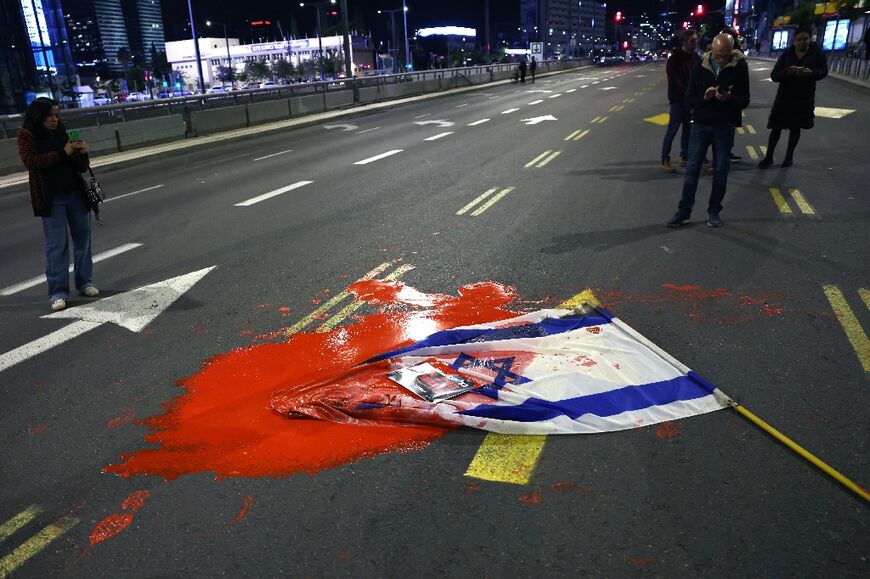
News platform Axios said the director of Israeli intelligence agency Mossad, David Barnea, was due to meet this weekend in an unspecified location in Europe with Qatari Prime Minister Sheikh Mohammed bin Abdulrahman Al Thani, who helped negotiate the earlier truce.
In Gaza, fierce fighting continued.
The Israeli army said it had raided two schools which it said were Hamas hiding places in Gaza City.
The Latin Patriarchate of Jerusalem said a Christian mother and daughter were shot dead by an Israeli soldier on the grounds of the Gaza Strip's only Catholic church.
"Nahida and her daughter Samar were shot and killed as they walked to the Sister's Convent. One was killed as she tried to carry the other to safety," the patriarchate said in a statement.
Seven more people were wounded by gunfire as they tried to protect others in the grounds of the Holy Family Church, where Christian families have been sheltering since the war broke out.
The Israeli army did not immediately respond to a request for comment.
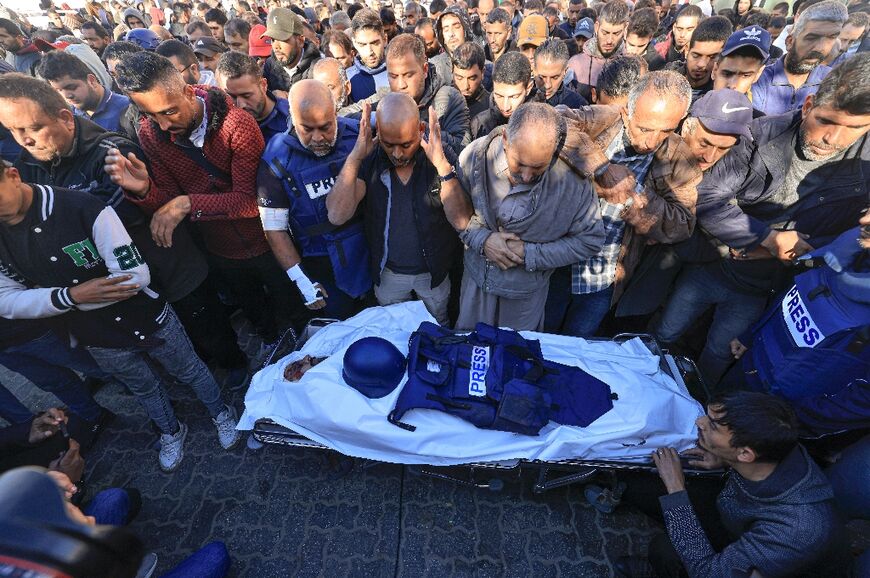
The funeral was held in Gaza of Samer Abu Daqqa, a journalist with television network Al Jazeera killed by an Israeli strike on Khan Yunis on Friday. His colleague Wael al-Dahdouh was wounded.
More than 60 journalists and media staff have died since the war began, according to the Committee to Protect Journalists.
- Widening fallout -
In the Israeli-occupied West Bank, eight Palestinians were arrested in Israeli raids, Palestinian news agency Wafa reported.
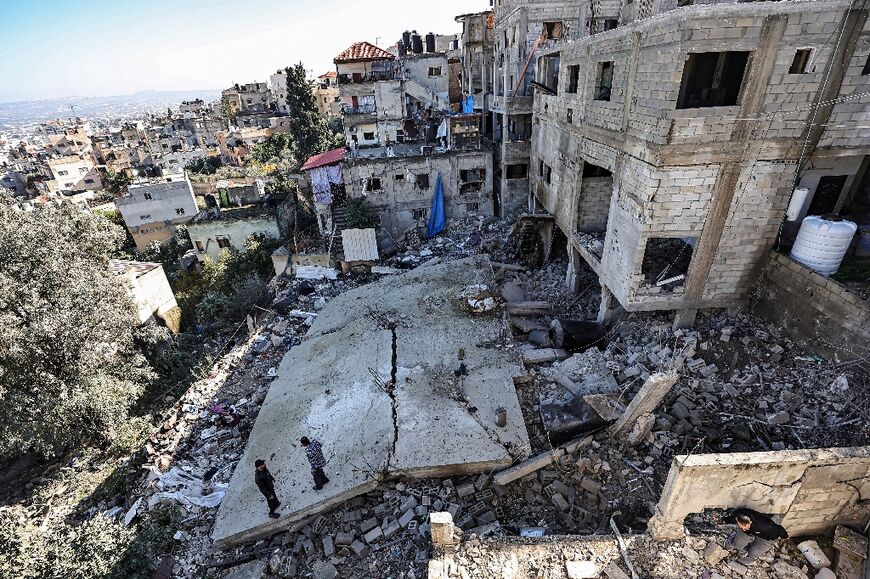
The war continues to be felt across the Middle East and has raised fears of a broader conflict.
Israel has exchanged regular fire with militants, mainly the powerful Iran-backed Hezbollah, across its northern border with Lebanon.
The Israeli army said a soldier was killed and two others wounded in the Margaliot area on the Lebanese boundary. A spokesperson confirmed to AFP the casualties were caused by a "hostile aircraft".
The conflict has also caused major disruption to the key Red Sea shipping lane between Asia and Europe, with two more major firms announcing they were redirecting their vessels following repeated attacks by Yemeni rebels allied with Hamas.
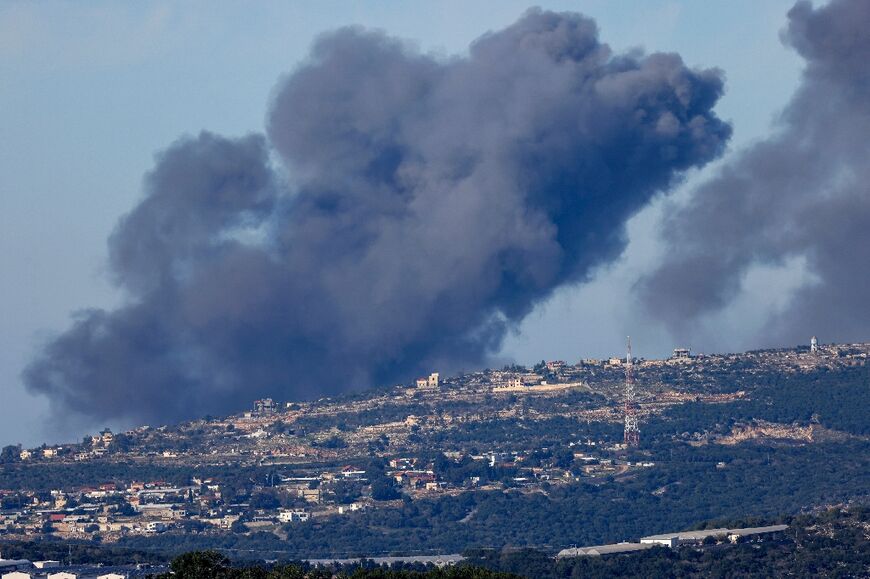
The action by Mediterranean Shipping Company (MSC) and CMA CGM follows similar moves on Friday by Maersk and Hapag-Lloyd.
It comes after Yemen's Iran-backed Huthi rebels launched repeated attacks on passing vessels in recent days.
The rebels also launched a wave of 14 one-way attack drones on Saturday, all of which were "shot down with no damage to ships in the area or reported injuries", the US military's Central Command said.
burs-kir/it
